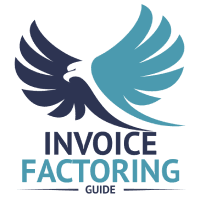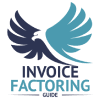
Curious what factoring companies look for during the approval process? It’s straightforward, and most businesses are approved because factors are more concerned about the creditworthiness of customers paying the invoices rather than the business leveraging factoring services. However, there are still some things you can do to help ensure you’re prepared for the factoring approval process and increase your chances of success. We’ll explore them below.
How Factoring Companies’ Approval Process Works
Before a factoring company agrees to purchase your invoices, it needs to evaluate your business and the invoices themselves. This process is more straightforward than applying for a loan, but that doesn’t mean approval is automatic. It typically unfolds in several steps, each designed to protect both you and the factoring company from unnecessary risk.
Step One: Initial Inquiry and Fit Assessment
You’ll usually start by filling out a short form or having a phone call with the factoring company. At this stage, they are just getting a high-level sense of your business. They want to know things like:
- Industry Overview: What industry your business operates in, and whether it aligns with the factoring company’s area of expertise.
- Business Longevity: How long you’ve been operating and whether you have a consistent invoicing history.
- Monthly Invoice Volume: Approximately how much you invoice each month to determine funding potential.
- Customer Profile: Who your customers are and whether they meet the credit standards most factors require.
If it seems like a possible fit, they’ll move you to the next stage.
Step Two: Application and Documentation Review
This is where the paperwork begins. You’ll be asked to submit business documents, a list of your open receivables, and customer information. The factoring company will review this to verify the legitimacy and stability of your invoicing practices.
This stage includes an accounts receivable quality assessment, which is exactly what it sounds like. The factor wants to see how reliable your customers are at paying, how old your receivables are, and whether you’re tracking them consistently.
Step Three: Underwriting and Risk Evaluation
Once your documents are in, the factoring company performs a deeper factoring risk assessment. This involves checking your customers’ creditworthiness, evaluating your invoicing patterns, and reviewing any red flags in your financials or customer base.
Your credit score is not a major factor here. The focus is on how dependable your customers are, because they’re the ones ultimately paying the invoices.
Step Four: Approval and Agreement
If everything looks solid, you’ll receive an approval and a factoring agreement. This is a legal contract that outlines things like:
- Advance Rates: Your advance rate is the percentage of the invoice amount you’ll receive upfront and the cost of the factoring service. Your agreement will cover this as well as the factoring reserve, which is the portion of the invoice that’s held back.
- Fees: Expect to pay a factoring fee that’s between one and five percent of the invoice’s value. Your contract may cover other fees that add to the total cost of factoring.
- Collections Handling: This includes how and when the factor collects payments from your customers, and how that impacts your funding.
- Scope and Duration of the Arrangement: The length of the agreement and any limitations, such as minimum invoice volumes or restricted customer types.
You’ll want to review the contract and all its clauses carefully. Some factors move quickly and can send funds within 24 hours of signing.
Step Five: Ongoing Monitoring
Even after you’re approved, the relationship doesn’t go on autopilot. Factoring companies monitor your account activity and your customers’ payment behavior on a regular basis. If your invoicing volume increases or a key customer starts paying late, the factor may revisit your terms or reach out to discuss next steps.
Key Criteria for Factoring Approval
Factoring companies are not lenders, but they still need to manage risk. Instead of asking about your credit score and collateral like a bank would, they focus on your invoices and the health of your business. Each factoring company has its own process, but the factoring eligibility criteria they use tend to fall into a few key areas.
Business Stability for Factoring Approval
You don’t need perfect financials or a long track record to qualify, but factoring companies do want to see that your business is functional and steady. They look for signs that you’re operational, responsive, and likely to continue generating invoices in the near future.
This may include:
- Consistent Invoicing History: Even if your revenue fluctuates, factors want to see that you’ve been sending out invoices regularly.
- Organized Financials: Clean records and easy-to-understand invoicing processes show that your business is professionally run.
- Active Customer Relationships: A history of work with creditworthy customers helps demonstrate predictability.
Some factors will work with startups or new businesses, but expect more scrutiny around your customers and documentation in those cases.
Customer Creditworthiness
Factoring companies care less about your credit and more about your customers’. They want to know your clients are reliable and likely to pay their invoices in full and on time.
They’ll assess this by:
- Running Credit Checks on Customers: Factors use commercial credit reports to check your customers’ payment history with other vendors.
- Evaluating Customer Concentration: If most of your invoices come from just one or two customers, the high customer concentration can be seen as higher risk.
- Reviewing Past Payment Behavior: If your customers have a pattern of late or missed payments, it could delay or limit your approval.
If you mostly work with large, stable companies or government agencies, you’re in a strong position here.
Invoice Quality and Structure
Even if your customers are solid, the structure of your invoices can still affect approval. Factoring companies want to know that your invoices are:
- Clear and Verifiable: They should include specific terms, dates, and amounts that are easy to verify.
- Free of Disputes: If customers regularly challenge or delay payments due to billing errors, these will likely result in red flags, delaying factoring approval.
- Aged Within an Acceptable Range: Most factors prefer invoices that are thirty to ninety days old or newer.
Industry and Transaction Type
Some industries are more straightforward to factor than others. If you provide a clear product or service and invoice after delivery, that’s generally favorable. But if you invoice in stages, or get paid based on performance or approval milestones, you may need to provide extra documentation. A few industries that typically work well with factoring are outlined below.
- Staffing and Temp Agencies: Factoring is commonly used by staffing and temp agencies to manage payroll while waiting for client payments.
- Transportation and Freight Companies: Factoring helps transportation and freight companies get paid faster, especially when brokers or shippers take thirty to sixty days.
- Manufacturing Businesses: It’s common for manufacturing companies to use factoring to smooth out cash flow while covering materials and labor costs.
- Wholesale and Distribution Companies: Many wholesale and distribution companies rely on factoring to bridge the gap between inventory purchases and customer payments.
- B2B Service Providers: Factoring gives B2B service providers access to working capital without taking on debt.
If your business falls outside these industries, that doesn’t mean you’ll be turned away. Factoring companies often evaluate businesses on a case-by-case basis, especially if your invoices are structured clearly and your customers have strong payment histories.
Required Financial Documentation for Factoring Approval

You do not need a perfect balance sheet to get approved for factoring. However, factoring companies still expect some basic documentation so they can understand how your business operates and what they are funding. Having the right documents ready up front can speed up the process and increase your approval odds.
Core Business Information
Most factoring companies will ask for foundational documents that verify your business structure and legal standing.
- Articles of Incorporation or Business License: These show that your company is legally registered and in good standing.
- Voided Business Check or Bank Letter: This confirms where funds should be deposited.
- Tax ID or EIN Confirmation: You’ll need to verify your company’s federal tax identification number.
Receivables and Invoice Details
Factoring companies need to see who owes you money, how much, and how current those receivables are.
- Accounts Receivable Aging Report: This is one of the most important documents in the process. It shows outstanding invoices and how long they have been unpaid.
- Sample Invoices: These give the factor a chance to review your formatting, payment terms, and customer details.
- Customer List with Contact Info: This helps the factor assess risk and prepare for any verifications.
You may also be asked for customer contracts or purchase orders, especially if you are invoicing for projects or specialized services.
Required Financial Statements for Factoring
While factoring companies are more focused on your customers than your credit, they will still review basic financials to understand your company’s cash flow.
- Profit and Loss Statement: This shows how much revenue you’re bringing in compared to expenses.
- Balance Sheet: This is a quick snapshot of your company’s assets, liabilities, and equity.
- Recent Bank Statements: These help validate your financial activity and cash flow patterns.
Tips for Increasing Factoring Approval Chances

Even if your business is in good shape, there are a few things you can do to make the approval process smoother and strengthen your position with a factoring company. These steps show that you are organized, transparent, and a good long-term partner.
Keep Receivables Clean and Up to Date
One of the first things a factoring company will review is your aging report. If it’s filled with overdue invoices or unclear balances, it will raise concerns.
- Monitor Outstanding Invoices Weekly: Staying on top of receivables reduces the risk of missing aging cutoffs.
- Separate Disputed Invoices: If you are actively addressing customer payment disputes, make sure those invoices are clearly labeled and not included in what you plan to factor.
- Avoid Partial Payments without Explanation: Unclear payment records can create confusion during underwriting.
Build a Strong Customer Base
Since factoring relies on your customers paying their invoices, their reliability directly affects your approval.
- Work with Creditworthy Clients: Large companies, government contracts, and well-established B2B firms tend to be more favorable in the eyes of factoring companies.
- Limit Risky Clients: If a customer routinely pays late or disputes charges, consider excluding their invoices from your factoring setup.
- Keep Customer Info Organized: Having contact names, emails, and phone numbers ready can speed up verifications.
Present Your Business as a Professional Operation
How you present your business during the factoring application process matters. It is often the first impression the factor gets of how you manage day-to-day operations.
- Use Branded Invoice Templates: Custom invoices with clear terms and consistent formatting look more trustworthy. Consider using software like QuickBooks, Xero, or Zoho Books to generate consistent invoices. This will also help you stay on top of your reporting.
- Respond Quickly to Information Requests: Delays in sending documents or answering questions can stall or even derail approval.
- Stay Transparent About Challenges: If you’ve had recent customer churn or supply chain issues, explain what you’ve done to address them.
Kickstart Your Factoring Approval Process
We can help streamline your path to funding by matching you with vetted factoring companies that offer fast approvals and tailored service. To get started, request a complimentary rate quote.
Factoring Approval Process FAQs
What is the process of factoring?
The factoring process starts with a short application and document review. After evaluating your receivables and customer base, the factor sends an agreement. Once signed, they advance funds based on approved invoices and collect directly from your customers. You receive the remainder, minus fees, when the invoice is paid.
How long does factoring take?
Initial approval can take one to three business days, depending on how quickly documents are submitted. After that, funding often occurs within twenty-four hours of submitting an invoice. Some companies offer same-day funding for repeat clients with active factoring agreements in place and no outstanding issues.
Do factoring companies check your credit?
Most factoring companies perform at least a soft credit check on you, but their main concern is your customers’ creditworthiness. They want to make sure your clients are financially stable and have a strong history of paying vendors on time. Your credit is rarely the deciding factor in approval.
What are factoring company requirements?
Factoring companies usually require that you invoice business or government customers on net terms, have clean, verifiable receivables, and maintain organized records. You’ll need to provide documents like an aging report, sample invoices, and basic financials. Requirements vary slightly, but strong customers and clear documentation are always key.
What disqualifies you from getting approved for factoring?
The most common disqualifiers include invoicing non-creditworthy customers, having too many past-due or disputed invoices, and lacking proper documentation. Factors may also decline businesses in high-risk industries or those without a consistent invoicing history. Even if you’re denied, some companies may refer you to a partner better suited to your situation.
Do you need financial statements for invoice factoring?
Yes, most factoring companies request basic financial statements such as a profit and loss statement, a balance sheet, and recent bank statements. These help them understand your business operations and cash flow. However, audited financials are usually not required, and some providers will work with limited documentation.
Can startups get approved for invoice factoring?
Some factoring companies work with startups, especially if the business has strong customers and clear, verifiable invoices. Startups may face more documentation requirements and closer scrutiny, but approval is possible. Having signed contracts or purchase orders can strengthen your application even if you have a short operating history.
How important is customer credit in factoring approval?
Customer credit is one of the most important factors in approval. Factoring companies assess your clients’ ability to pay since they collect directly from them. Businesses that work with large corporations or government entities tend to have an easier time getting approved due to the low risk of nonpayment.
What documents are needed to apply for factoring?
Common documents include an accounts receivable aging report, sample invoices, customer lists, recent bank statements, and basic business registration records. These help the factor confirm that your invoices are legitimate and that your customers are likely to pay. Submitting complete and accurate documentation can speed up approval.

About Invoice Factoring Guide
Related Insights
Get an instant funding estimate
Results are estimates based on the calculated rate and the total invoice amount provided.
Actual rates may vary.
Request a Factoring Rate Quote
PREFER TO TALK? Call us at 1-844-887-0300










